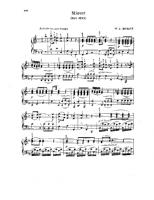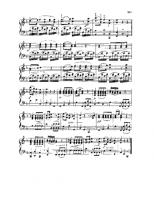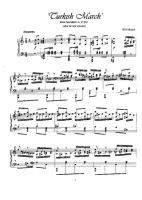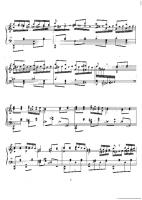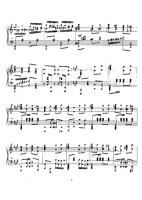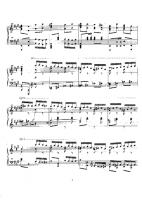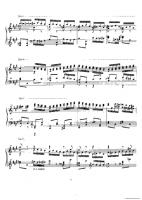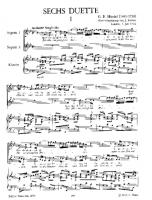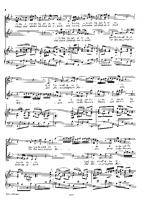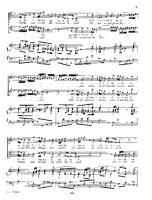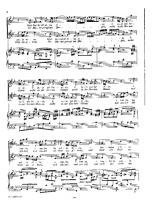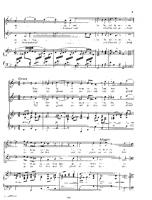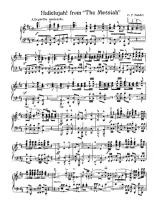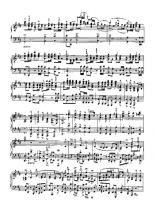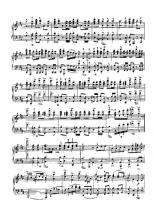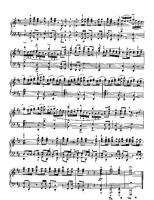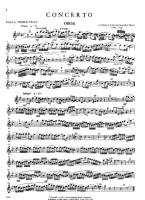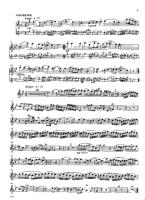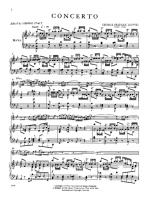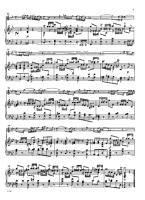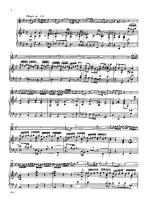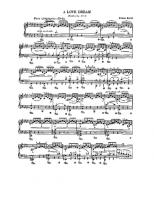Latest Sheets
Counting Crows
 Counting Crows is a rock band originating from Berkeley, California. The group gained popularity in 1994 following the release of its debut album August and Everything After, which featured the hit single "Mr. Jones". The band's influences include Van Morrison, R.E.M., Nirvana, Bob Dylan, and The Band. They received a 2004 Academy Award nomination for the song "Accidentally in Love".
Counting Crows is a rock band originating from Berkeley, California. The group gained popularity in 1994 following the release of its debut album August and Everything After, which featured the hit single "Mr. Jones". The band's influences include Van Morrison, R.E.M., Nirvana, Bob Dylan, and The Band. They received a 2004 Academy Award nomination for the song "Accidentally in Love".
Michael Bolton
 Michael Bolton (born Michael Bolotin on February 26, 1953), is an American singer-songwriter, best known for his soft rock ballads and tenor vocals.
Michael Bolton (born Michael Bolotin on February 26, 1953), is an American singer-songwriter, best known for his soft rock ballads and tenor vocals.His achievements include selling 53 million albums, eight top ten albums, two number one singles on the Billboard charts, and awards from both the American Music Awards and Grammy Awards.
Bolton's hard rock band, Blackjack, once toured with heavy metal singer Ozzy Osbourne. He began recording as Michael Bolotin in 1975, after gaining his first major hit as a songwriter, co-writing "How Am I Supposed to Live Without You" for Laura Branigan, previously best-known for singing the disco-pop classic "Gloria". Narrowly missing the Top 10 on the U.S. pop chart, Branigan took the song to number one on the Adult Contemporary chart for three weeks. The two sought to work with each other again, and their next of several associations was when Bolton co-wrote "I Found Someone" for Branigan in 1985. Her version was only a minor hit, but two years later, Cher resurrected the song, and with it her own singing career. Bolton co-wrote several other songs for both singers.
Bolton would achieve his greatest success in the late eighties and early nineties as a singer in the adult contemporary/easy listening genre. One of his first major hits was his 1987 interpretation of the Otis Redding classic, "(Sittin' On) the Dock of the Bay." Always interested in soul and Motown classics, Bolton's success with that song encouraged him to tackle the standard "Georgia On My Mind," with which he had another hit. Most of Bolton's recordings are original material, however, he has also written songs for such artists as Barbra Streisand, Kenny Rogers, Kenny G, Peabo Bryson and Patti LaBelle. Bolton's early songwriting collaborators included Doug James and Mark Mangold, and as his fame grew he began to cowrite with higher-profile writers such as BabyFace, Diane Warren, and Bob Dylan. As a singer, he has performed with Plácido Domingo, Luciano Pavarotti, José Carreras, Lucia Aliberti, Renée Fleming, Zucchero, Patti LaBelle, Céline Dion, Ray Charles, Percy Sledge, Wynonna Judd, and BB King.
Take That
 Take That are an English pop musical group consisting of members Gary Barlow, Howard Donald, Jason Orange, Mark Owen, and, formerly, Robbie Williams. After seeing major success in the early to mid 1990s as a five person act, a reformed four man version of the band achieved new success in the mid-2000s without Williams. Formed by Nigel Martin Smith in Manchester in 1990, Take That sold more than 30 million records between 1991–1996. Between the band's first single release in 1991 and their breakup in 1996, the BBC described Take That as "the most successful British band since The Beatles in the UK, beloved of young and old alike". Take That's dance-oriented pop tunes and soulful ballads dominated the UK charts in the first half of the 1990s, spawning two of the best selling albums of the decade with Everything Changes (which was nominated for the 1994 Mercury Prize) and Greatest Hits 1996, and according to Allmusic, "at this time were giant superstars in Europe with the main question about them not being about whether they could get a hit single, but how many and which would make it to number one".
Take That are an English pop musical group consisting of members Gary Barlow, Howard Donald, Jason Orange, Mark Owen, and, formerly, Robbie Williams. After seeing major success in the early to mid 1990s as a five person act, a reformed four man version of the band achieved new success in the mid-2000s without Williams. Formed by Nigel Martin Smith in Manchester in 1990, Take That sold more than 30 million records between 1991–1996. Between the band's first single release in 1991 and their breakup in 1996, the BBC described Take That as "the most successful British band since The Beatles in the UK, beloved of young and old alike". Take That's dance-oriented pop tunes and soulful ballads dominated the UK charts in the first half of the 1990s, spawning two of the best selling albums of the decade with Everything Changes (which was nominated for the 1994 Mercury Prize) and Greatest Hits 1996, and according to Allmusic, "at this time were giant superstars in Europe with the main question about them not being about whether they could get a hit single, but how many and which would make it to number one".The band split up in 1996, but after a 2005 documentary and the release of a greatest hits album, they officially announced a 2006 reunion tour around the United Kingdom, entitled The Ultimate Tour. On May 9, 2006, it was announced that Take That were set to record their first studio album Beautiful World in over 10 years. They then went onto produce another sellout tour in 2007, The Beautiful World Tour, which garnered positive reviews from critics, and is to date their highest selling tour.
David Lanz
 David Lanz (born June 28, 1950 in Seattle, Washington) is a Grammy-nominated New Age pianist. He has released 13 albums, each having some chart success. His most famous album, Cristofori's Dream, topped the New Age charts in 1988, which was Number One on Billboard's first adult alternative/New Age chart for 27 weeks and eventually sold platinum. Natural States peaked at place 125 on the Billboard 200.
David Lanz (born June 28, 1950 in Seattle, Washington) is a Grammy-nominated New Age pianist. He has released 13 albums, each having some chart success. His most famous album, Cristofori's Dream, topped the New Age charts in 1988, which was Number One on Billboard's first adult alternative/New Age chart for 27 weeks and eventually sold platinum. Natural States peaked at place 125 on the Billboard 200.Lanz's goal is to have his music create an atmosphere of enlightenment. In an interview with Barnes & Noble, Lanz stated that he wanted to create an atmosphere similar to that of Steven Halpern's music, but with a "more popular hook in it".
Lanz has said himself, " is the most divinely inspired instrument on the planet. It presents a great attraction to our left-right brain relationship. My goal is to create entertainment that also provides enlightenment."
Jim Brickman
 Jim Brickman (born November 20, 1961) is an American composer and pianist. Brickman is known for his solo piano compositions, which are classified as new age music. However, he is as well known for his original love songs and performing them with vocalists such as Martina McBride, Michael W. Smith, Michelle Wright and others.
Jim Brickman (born November 20, 1961) is an American composer and pianist. Brickman is known for his solo piano compositions, which are classified as new age music. However, he is as well known for his original love songs and performing them with vocalists such as Martina McBride, Michael W. Smith, Michelle Wright and others.His music career started when he was nineteen, when Jim Henson hired him to write tunes for Sesame Street. He was also hired to write commercial jingles while in college.
Brickman signed with Windham Hill Records to release his first album, No Words, in 1994. The song "Rocket To The Moon" from that album was the first solo instrumental song ever to be ranked on Billboard's charts. Four of his albums (By Heart, Picture This, The Gift, and Destiny) have all sold over 500,000 copies, qualifying them as gold records in the United States.
Brickman writes a wide variety of music. Besides his piano compositions and love songs, he has also created arrangements of other songs. Several of his albums feature arrangements of children's music; he has produced two Christmas-themed albums The Gift (1997) and Peace (2003); and his 2005 album Grace concentrates on arrangements of well-known Christian music.
Ultravox
 Ultravox (formerly Ultravox!) were a British New Wave band that rose to prominence in the early 1980s. They were one of the primary exponents of the British electronic pop music movement of the early 1980s. The band was particularly associated with the New Romantic movement, although it both pre- and post-dated New Romanticism by several years.
Ultravox (formerly Ultravox!) were a British New Wave band that rose to prominence in the early 1980s. They were one of the primary exponents of the British electronic pop music movement of the early 1980s. The band was particularly associated with the New Romantic movement, although it both pre- and post-dated New Romanticism by several years.Members:
John Foxx, Chris Cross, Stevie Shears, Warren Cann
Billy Currie, Robin Simon, Midge Ure, Mark Brzezicki
Tony Fenelle, Sam Blue, Vinny Burns, Tony Holmes, Gary Williams
Enya
 Enya (born Eithne Patricia Nà Bhraonáinon May 17, 1961, Gaoth Dobhair, County Donegal, Ireland), sometimes presented in the media as Enya Brennan, is an Irish singer, instrumentalist and composer. She is Ireland's best-selling solo artist and is officially the country's second biggest musical export (after U2). Her works have earned her four Grammy Awards and an Academy Award nomination, and she is also famous for performing in 10 different languages during her lengthy career. Enya is an approximate transcription of how Eithne is pronounced in her native Irish, in the Donegal dialect.
Enya (born Eithne Patricia Nà Bhraonáinon May 17, 1961, Gaoth Dobhair, County Donegal, Ireland), sometimes presented in the media as Enya Brennan, is an Irish singer, instrumentalist and composer. She is Ireland's best-selling solo artist and is officially the country's second biggest musical export (after U2). Her works have earned her four Grammy Awards and an Academy Award nomination, and she is also famous for performing in 10 different languages during her lengthy career. Enya is an approximate transcription of how Eithne is pronounced in her native Irish, in the Donegal dialect.
George Winston
 George Winston (born 1949) is an American pianist who was born in Michigan, and grew up in Miles City, Montana, and Mississippi. He is a graduate of Stetson University in Deland, Florida and lives in Santa Monica, California. Many of his pieces, self-described as "Rural Folk Piano", evoke the essence of a season and reflect natural landscapes. He performs in the new age genre. He also is known for his tribute album of Vince Guaraldi's compositions for the Peanuts animations.
George Winston (born 1949) is an American pianist who was born in Michigan, and grew up in Miles City, Montana, and Mississippi. He is a graduate of Stetson University in Deland, Florida and lives in Santa Monica, California. Many of his pieces, self-described as "Rural Folk Piano", evoke the essence of a season and reflect natural landscapes. He performs in the new age genre. He also is known for his tribute album of Vince Guaraldi's compositions for the Peanuts animations.
Spandau Ballet
 Spandau Ballet was a popular British band in the 1980s. Initially inspired by a mixture of funk and synthpop, the group eventually mellowed into a mainstream pop act.
Spandau Ballet was a popular British band in the 1980s. Initially inspired by a mixture of funk and synthpop, the group eventually mellowed into a mainstream pop act.Members:
Tony Hadley
Gary Kemp
Martin Kemp
Steve Norman
John Keeble
John Tesh
 John Frank Tesh (born July 9, 1952) is an American pianist and composer of new age and contemporary Christian music. He is also a nationally syndicated radio host, and has previously served as a sportscaster, news anchor and reporter. Besides the piano, he also plays the keyboard, guitar, saxophone and sings. He is also known by many as the long time host of the television program Entertainment Tonight.
John Frank Tesh (born July 9, 1952) is an American pianist and composer of new age and contemporary Christian music. He is also a nationally syndicated radio host, and has previously served as a sportscaster, news anchor and reporter. Besides the piano, he also plays the keyboard, guitar, saxophone and sings. He is also known by many as the long time host of the television program Entertainment Tonight.
Puccini
 Giacomo Antonio Domenico Michele Secondo Maria Puccini (December 22, 1858 – November 29, 1924) was an Italian composer whose operas, including La Bohème, Tosca, and Madama Butterfly, are among the most frequently performed in the standard repertoire. Some of his arias, such as "O Mio Babbino Caro" from Gianni Schicchi, "Che gelida manina" from La Bohème, and "Nessun Dorma" from Turandot, have become part of popular culture.
Giacomo Antonio Domenico Michele Secondo Maria Puccini (December 22, 1858 – November 29, 1924) was an Italian composer whose operas, including La Bohème, Tosca, and Madama Butterfly, are among the most frequently performed in the standard repertoire. Some of his arias, such as "O Mio Babbino Caro" from Gianni Schicchi, "Che gelida manina" from La Bohème, and "Nessun Dorma" from Turandot, have become part of popular culture.The subject of Puccini's style is one that has been long avoided by musicologists; this avoidance can perhaps be attributed to the perception that his work, with its emphasis on melody and evident popular appeal, lacked "seriousness" (a similar prejudice beset Rachmaninoff during his lifetime). Despite the place Puccini clearly occupies in the popular tradition of Verdi, his style of orchestration also shows the strong influence of Wagner, matching specific orchestral configurations and timbres to different dramatic moments. His operas contain an unparalleled manipulation of orchestral colors, with the orchestra often creating the scene’s atmosphere.
The structures of Puccini's works are also noteworthy. While it is to an extent possible to divide his operas into arias or numbers (like Verdi's), his scores generally present a very strong sense of continuous flow and connectivity, perhaps another sign of Wagner’s influence. Like Wagner, Puccini used leitmotifs to connote characters (or combinations of characters). This is apparent in Tosca, where the three chords which signal the beginning of the opera are used throughout to announce Scarpia. Several motifs are also linked to Mimi and the Bohemians in La Bohème and to Cio-Cio-San's eventual suicide in Butterfly. Unlike Wagner, though, Puccini's motifs are static: where Wagner's motifs develop into more complicated figures as the characters develop, Puccini's remain more or less identical throughout the opera (in this respect anticipating the themes of modern musical theatre).
Schumann
 Robert Schumann, sometimes given as Robert Alexander Schumann, (June 8, 1810 – July 29, 1856) was a German composer, aesthete and influential music critic. He is one of the most famous Romantic composers of the 19th century.
Robert Schumann, sometimes given as Robert Alexander Schumann, (June 8, 1810 – July 29, 1856) was a German composer, aesthete and influential music critic. He is one of the most famous Romantic composers of the 19th century.He had hoped to pursue a career as a virtuoso pianist, having been assured by his teacher Friedrich Wieck that he could become the finest pianist in Europe after only a few years of study with him. However, a hand injury prevented those hopes from being realized, and he decided to focus his musical energies on composition. Schumann's published compositions were, until 1840, all for the piano; he later composed works for piano and orchestra, many lieder (songs for voice and piano), four symphonies, an opera, and other orchestral, choral and chamber works. His writings about music appeared mostly in the Neue Zeitschrift für Musik ("The New Journal for Music"), a Leipzig-based publication that he jointly founded.
In 1840, after a long and acrimonious legal battle with his piano instructor Friedrich Wieck, Schumann married Wieck's daughter, pianist Clara Wieck, a considerable figure of the Romantic period in her own right. Clara Wieck showcased many works by her husband as well. For the last two years of his life, after an attempted suicide, Schumann was confined to a mental institution.
Mozart
 Wolfgang Amadeus Mozart, full name Johann Chrysostom Wolfgang Amadeus Mozart (27 January 1756 â 5 December 1791) was a prolific and influential composer of the Classical era. His over 600 compositions include works widely acknowledged as pinnacles of symphonic, concertante, chamber, piano, operatic, and choral music. Mozart is among the most enduringly popular of classical composers, and many of his works are part of the standard concert repertoire.
Wolfgang Amadeus Mozart, full name Johann Chrysostom Wolfgang Amadeus Mozart (27 January 1756 â 5 December 1791) was a prolific and influential composer of the Classical era. His over 600 compositions include works widely acknowledged as pinnacles of symphonic, concertante, chamber, piano, operatic, and choral music. Mozart is among the most enduringly popular of classical composers, and many of his works are part of the standard concert repertoire.Mozart's music, like Haydn's, stands as an archetypal example of the Classical style. His works spanned the period during which that style transformed from one exemplified by the style galant to one that began to incorporate some of the contrapuntal complexities of the late Baroque, complexities against which the galant style had been a reaction. Mozart's own stylistic development closely paralleled the development of the classical style as a whole. In addition, he was a versatile composer and wrote in almost every major genre, including symphony, opera, the solo concerto, chamber music including string quartet and string quintet, and the piano sonata. While none of these genres were new, the piano concerto was almost single-handedly developed and popularized by Mozart. He also wrote a great deal of religious music, including masses; and he composed many dances, divertimenti, serenades, and other forms of light entertainment.
The central traits of the classical style can be identified in Mozart's music. Clarity, balance, and transparency are hallmarks of his work.
Handel
 George Frideric Handel (Friday, 23 February 1685 - Saturday, 14 April 1759) was a German-born Baroque composer who is famous for his operas, oratorios and concerti grossi. Born as Georg Friedrich Handel in Halle, he spent most of his adult life in England, becoming a subject of the British crown on 22 January 1727. His most famous works are Messiah, an oratorio set to texts from the King James Bible; Water Music; and Music for the Royal Fireworks. Strongly influenced by the techniques of the great composers of the Italian Baroque and the English composer Henry Purcell, his music was known to many significant composers who came after him, including Haydn, Mozart, and Beethoven.
George Frideric Handel (Friday, 23 February 1685 - Saturday, 14 April 1759) was a German-born Baroque composer who is famous for his operas, oratorios and concerti grossi. Born as Georg Friedrich Handel in Halle, he spent most of his adult life in England, becoming a subject of the British crown on 22 January 1727. His most famous works are Messiah, an oratorio set to texts from the King James Bible; Water Music; and Music for the Royal Fireworks. Strongly influenced by the techniques of the great composers of the Italian Baroque and the English composer Henry Purcell, his music was known to many significant composers who came after him, including Haydn, Mozart, and Beethoven.Handel's compositions include 42 operas; 29 oratorios; more than 120 cantatas, trios and duets; numerous arias; chamber music; a large number of ecumenical pieces; odes and serenatas; and sixteen organ concerti. His most famous work, the Messiah oratorio with its "Hallelujah" chorus, is among the most popular works in choral music and has become a centerpiece of the Christmas season. Also popular are the Opus 3 and 6 Concerti Grossi, as well as "The Cuckoo and the Nightingale", in which birds are heard calling during passages played in different keys representing the vocal ranges of two birds. Also notable are his sixteen keyboard suites, especially The Harmonious Blacksmith.
Handel introduced various previously uncommon musical instruments in his works: the viola d'amore and violetta marina (Orlando), the lute (Ode for St. Cecilia's Day), three trombones (Saul), clarinets or small high cornets (Tamerlano), theorbo, French horn (Water Music), lyrichord, double bassoon, viola da gamba, bell chimes, positive organ, and harp (Giulio Cesare, Alexander's Feast).
Liszt
 Franz Liszt (October 22, 1811 – July 31, 1886) was a Hungarian composer, virtuoso pianist and teacher.
Franz Liszt (October 22, 1811 – July 31, 1886) was a Hungarian composer, virtuoso pianist and teacher.Liszt became renowned throughout Europe for his great skill as a performer; to this day, many consider him to have been the greatest pianist in history. He was also an important and influential composer, a notable piano teacher, a conductor who contributed significantly to the modern development of the art, and a benefactor to other composers and performers, notably Richard Wagner and Hector Berlioz.
As a composer, Liszt was one of the most prominent representatives of the "Neudeutsche Schule" ("New German School"). He left behind a huge and diverse oeuvre, in which he influenced his forward-looking contemporaries and anticipated some 20th-century ideas and trends. Some of his most notable contributions were the invention of the symphonic poem, developing the concept of thematic transformation as part of his experiments in musical form and making radical departures in harmony.
Liszt has most frequently been credited to have been the first pianist who gave concerts with programs consisting only of solo pieces. An example is a concert he gave on March 9, 1839, at the Palazzo Poli in Rome. Since Liszt could not find singers who — following the usual habit of the time — should have completed the program, he played four numbers all alone.
Liszt was a prolific composer. Most of his music is for the piano and much of it requires formidable technique.In his most famous and virtuosic works, he is the archetypal Romantic composer. Liszt pioneered the technique of thematic transformation, a method of development which was related to both the existing variation technique and to the new use of the Leitmotif by Richard Wagner. Liszt's piano works are usually divided into two classes. On the one hand, there are "original works", and on the other hand "transcriptions", "paraphrases" or "fantasies" on works by other composers.
Vivaldi
 Antonio Lucio Vivaldi (March 4, 1678 â July 28, 1741), nicknamed il Prete Rosso ("The Red Priest"), was a Venetian priest and Baroque music composer, as well as a famous virtuoso violinist; he was born and raised in the Republic of Venice. The Four Seasons, a series of four violin concerti, is his best-known work and a highly popular Baroque piece.
Antonio Lucio Vivaldi (March 4, 1678 â July 28, 1741), nicknamed il Prete Rosso ("The Red Priest"), was a Venetian priest and Baroque music composer, as well as a famous virtuoso violinist; he was born and raised in the Republic of Venice. The Four Seasons, a series of four violin concerti, is his best-known work and a highly popular Baroque piece.Many of Vivaldi's compositions reflect a flamboyant, almost playful, exuberance. Most of Vivaldi's repertoire was rediscovered only in the first half of the 20th century in Turin and Genoa and was published in the second half. Vivaldi's music is innovative, breaking a consolidated tradition in schemes; he gave brightness to the formal and the rhythmic structure of the concerto, repeatedly looking for harmonic contrasts and innovative melodies and themes. Moreover, Vivaldi was able to compose nonacademic music, particularly meant to be appreciated by the wide public and not only by an intellectual minority. The joyful appearance of his music reveals in this regard a transmissible joy of composing; these are among the causes of the vast popularity of his music. This popularity soon made him famous in other countries such as France which was, at the time, very independent concerning its musical taste.
Vivaldi is considered one of the composers who brought Baroque music (with its typical contrast among heavy sonorities) to evolve into a classical style. Johann Sebastian Bach was deeply influenced by Vivaldi's concertos and arias (recalled in his Johannes Passion, Matthäuspassion, and cantatas). Bach transcribed a number of Vivaldi's concerti for solo keyboard, along with a number for orchestra, including the famous Concerto for Four Violins and Violoncello, Strings and Continuo (RV 580).
Ludovico Einaudi
 Ludovico Einaudi (born 23 November 1955) is an Italian contemporary classical music composer and pianist.
Ludovico Einaudi (born 23 November 1955) is an Italian contemporary classical music composer and pianist.Although Einaudi would prefer not to be labeled as any particular type of genre, he is sometimes referred to as Minimalist. This is despite his music not sharing the key musical properties associated with minimalism. This may be due to his music possessing sparse orchestration and simplistic melodies that some may wish to refer to as 'minimalist' despite not belonging to the musical movement of Minimalism.
Einaudi's own words on the matter reflect this viewpoint, with Einaudi referring to Minimalism as "elegance and openness", despite its more formal definition as a musical movement to which he arguably does not belong.
Beethoven
 Ludwig van Beethoven (16 December 1770 - 26 March 1827) was a German composer and pianist. He was a crucial figure in the transitional period between the Classical and Romantic eras in Western classical music, and remains one of the most respected and influential composers of all time.
Ludwig van Beethoven (16 December 1770 - 26 March 1827) was a German composer and pianist. He was a crucial figure in the transitional period between the Classical and Romantic eras in Western classical music, and remains one of the most respected and influential composers of all time.Born in Bonn, then in the Electorate of Cologne (now in modern-day Germany), he moved to Vienna in his early twenties and settled there, studying with Joseph Haydn and quickly gaining a reputation as a virtuoso pianist. Beethoven's hearing gradually deteriorated beginning in his twenties, yet he continued to compose masterpieces, and to conduct and perform, even after he was completely deaf.
Search for Free Sheet Music
You can make a search through the entire collection of sheets.
You can make a search through the entire collection of sheets.
Hi, fellow musicians!
There is no registration required to download the sheets but you can subscribe to our mailing list to get notified of new sheets.
There is no registration required to download the sheets but you can subscribe to our mailing list to get notified of new sheets.
Latest Artists
Larry Clark
× 1
John Miles × 1
Enrique Granados × 1
John Lennon × 2
David Quinlan × 1
Crystal Warriors × 1
Theodore Shapiro × 1
Onew × 1
Lee Konitz × 1
Fabrizio Paterlini × 1
Carlos Hernani Macchi × 1
Robert Fuchs × 1
Quincy Jones × 1
Nhac Viet × 1
Francis Lai × 1
Isham Jones × 1
Roy Eldridge × 1
Phil Collins × 1
Consuelo Velazquez × 1
Reynaldo Hahn × 1
Alfred Newman × 1
John Williams × 1
Yoko Kanno × 1
Giacomo Meyerbeer × 1
G.P. Palestrina × 2
Angela Espindola × 1
Fleetwood Mac × 1
Paganini × 2
M.Biskupska × 1
Brenda Lee × 1
Porco Rosso × 1
Baude Cordier × 1
Music theory × 4
Johnny Mercer × 1
Domenico Scarlatti × 1
Andy Williams × 1
Saverio Mercadante × 1
Aaron Yan × 1
Carl Orff × 1
Craig Carnelia × 1
Keith Emerson × 1
Alan Silvestri × 1
Josephine Cheong × 1
Michael McLean × 1
Johannes Bernardus van Bree × 1
Lin -Manuel Miranda × 1
Ringo Starr × 1
Hatsune Miku × 1
Erroll Garner × 1
Takeshi Senō × 1
John Miles × 1
Enrique Granados × 1
John Lennon × 2
David Quinlan × 1
Crystal Warriors × 1
Theodore Shapiro × 1
Onew × 1
Lee Konitz × 1
Fabrizio Paterlini × 1
Carlos Hernani Macchi × 1
Robert Fuchs × 1
Quincy Jones × 1
Nhac Viet × 1
Francis Lai × 1
Isham Jones × 1
Roy Eldridge × 1
Phil Collins × 1
Consuelo Velazquez × 1
Reynaldo Hahn × 1
Alfred Newman × 1
John Williams × 1
Yoko Kanno × 1
Giacomo Meyerbeer × 1
G.P. Palestrina × 2
Angela Espindola × 1
Fleetwood Mac × 1
Paganini × 2
M.Biskupska × 1
Brenda Lee × 1
Porco Rosso × 1
Baude Cordier × 1
Music theory × 4
Johnny Mercer × 1
Domenico Scarlatti × 1
Andy Williams × 1
Saverio Mercadante × 1
Aaron Yan × 1
Carl Orff × 1
Craig Carnelia × 1
Keith Emerson × 1
Alan Silvestri × 1
Josephine Cheong × 1
Michael McLean × 1
Johannes Bernardus van Bree × 1
Lin -Manuel Miranda × 1
Ringo Starr × 1
Hatsune Miku × 1
Erroll Garner × 1
Takeshi Senō × 1






























































































































































